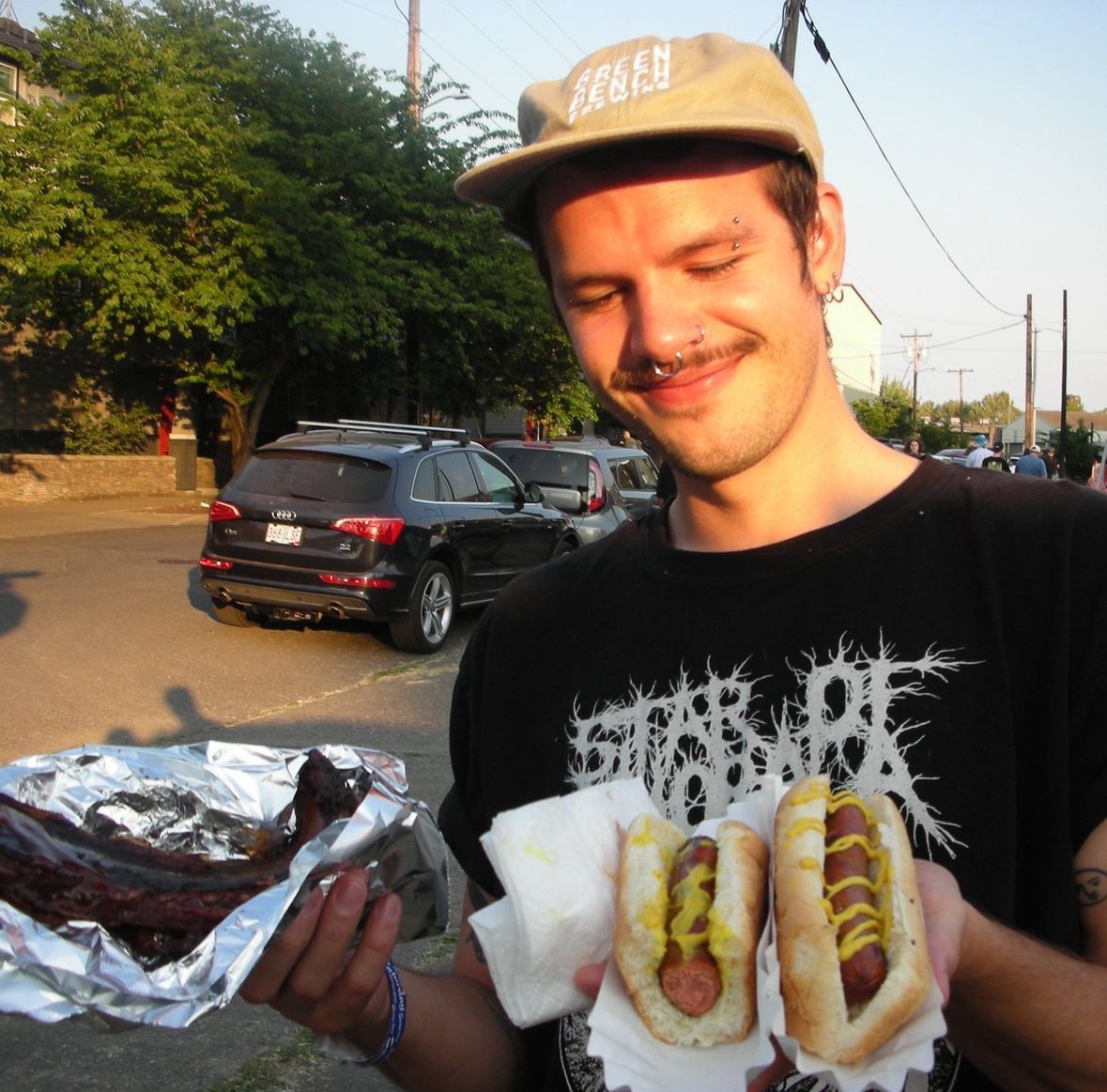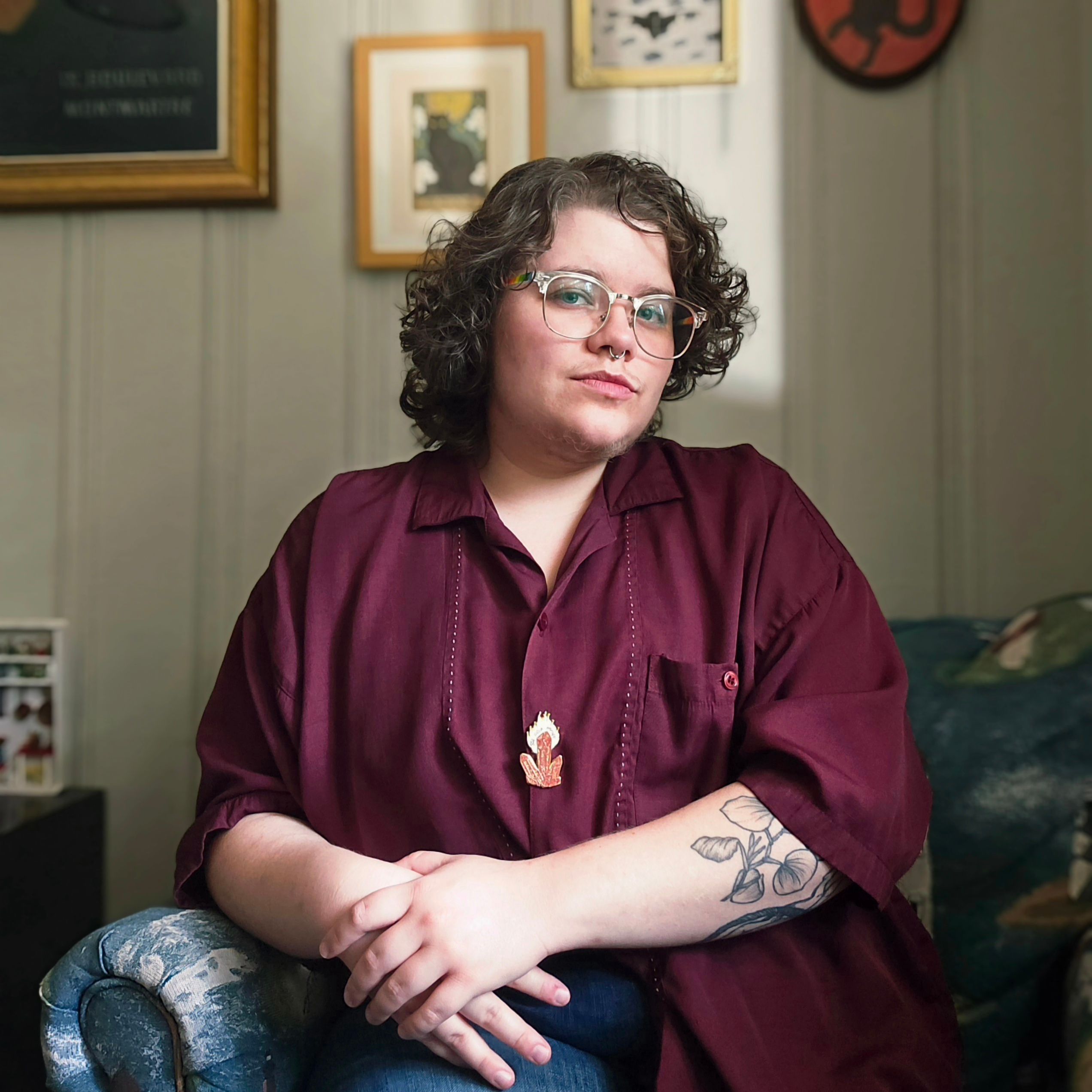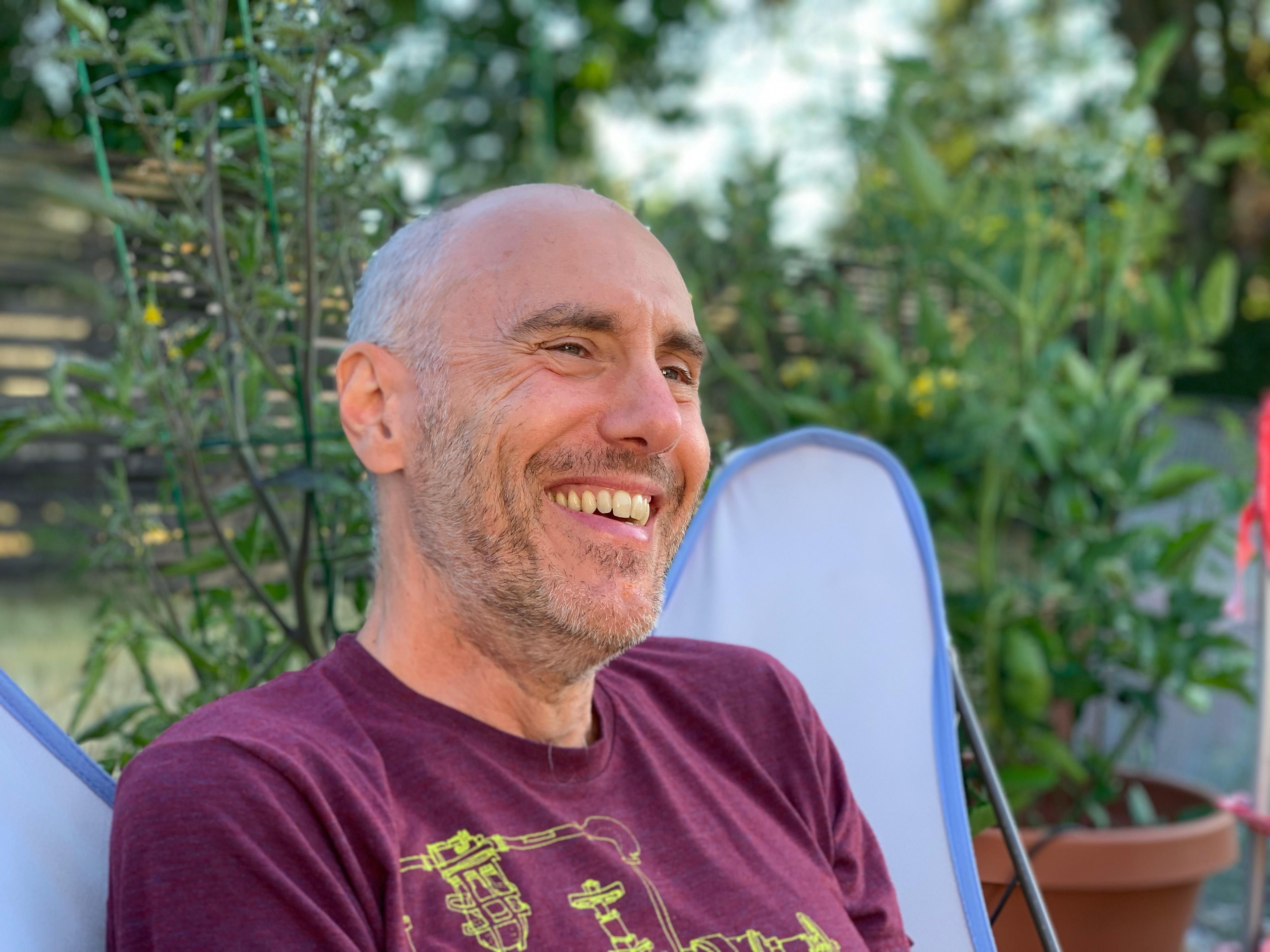In my younger days, I used to canvass up and down the streets of local towns, knocking on doors and handing out religious magazines. We called this “witnessing.” The idea was to win people over to our faith through industry and shoe leather, the way religious groups have done for centuries. It has never been an easy proposition, however. Most people are far more likely to switch their laundry detergent than their religion, and those who aren’t religious at all are seldom convinced by someone thrusting a sweat-stained tract into their hand.
By the age of twelve, I’d begun to grow discouraged by my lack of success. I could see the words “No, thank you” forming on people’s lips before they opened the door. Whatever it took to convince people to accept a spiritual magazine, I didn’t have it. I lacked the aptitude for witnessing the way I lacked the aptitude for algebra, which was a mystery to me.
What kept me going, besides my parents’ insistence, was the idea that someone out there was waiting for me to come along and change their life. The one person in a million. That’s what I was counting on. I’d heard stories about such people. They were looking for answers. Hungry for the truth. Desperate for hope of any kind. Many of them were in far-away countries, but a few were in my part of the world. All they needed was a brochure, or a magazine, or a little encouragement from someone like me. They were out there. I just had to find them.
I had a dream. It went like this: I would stumble across some poor soul at his wit’s end, who’d lost all reason for living, and who was eating TV dinners and barely getting out of bed every day, and, by virtue of my sunny presence at his door, would so alter his life that he would step back from the precipice the way a man will step back from a bridge before leaping to his death, talked down by a kind stranger who says just the right word at just the right moment.
Such people, however, were hard to locate. I hadn’t encountered a single one in all the houses I’d visited. Maybe they’d all moved away to someplace more conducive to their despair, or maybe they just didn’t want to talk to me. At any rate, I was tired of looking for them. It seemed hardly worth my time. Why look for people who don’t want to be found?
On top of that—out of a kind of youthful cynicism, I now realize—I began to despise the people I did encounter. None of them seemed to know what was important, or how high, in my eyes, the stakes were in their life. They couldn’t wait to get rid of me and go back to watching The Lone Ranger or some other Saturday afternoon TV program. If they didn’t care about what mattered, and couldn’t be bothered, why should I?
America was asleep. I’d seen it myself. Through the window, as I approached a house, people would be visible stretched out like cadavers on couches or La-z-Boys. When they came to the door, they would stare at me vacantly as if I were part of their dream. I hated it all: the slumbering houses and the slumbering people who didn’t have a clue.
When I admitted this to my father, he shook his head sadly. “You can’t give up on people,” he said. “Sometimes it takes just one word to change a person’s life. You never know what kind of effect you’ll have on them, even if they don’t take your magazine.”
My father loved witnessing. Nothing was more noble or important. He witnessed whenever he saw an opportunity; at the grocery store, the mall, the library, the men’s room at the gas station. One had to be ready at all times. The next opportunity could come along any minute.
I might have abandoned the enterprise altogether if my father hadn’t come up with a game he called “Drive-by Witnessing.” He must have sensed how dejected I was and how badly I needed a new approach. “Drive-by Witnessing,” as he explained it, involved throwing our magazines into people’s yards from a moving car, the way newspaper boys hurl papers from bicycles. This was done all over America, every day of the week. If you could throw a newspaper with comic strips and astrology charts into someone’s yard, said my father, you could certainly do the same with a magazine containing life-changing information.
“It’s going to be great!” he promised.
The idea appealed to me immediately. I loved throwing things in general: balls, sticks, rocks, darts, frisbees. I threw whatever I could get my hands on. I was a thrower by nature. It was in my blood. Give me a target, and I would happily aim something at it. This was the brilliance of my father’s plan: combining what I loved with what he loved.
I also believe, in hindsight, that Drive-by Witnessing was my father’s great contribution to door-to-door evangelism, which frankly needed a little refreshing. Who knows how much better the world might be today if the Disciples had thrown scrolls into front yards as they perambulated through Judea, Ephesus, Galata, and other parts of the Mediterranean?
My mother, when informed of my father’s plan, thought it was a bad idea. It seemed crass to her. Knocking on a door was a dignified thing. A respectable thing. People had been doing it forever. Throwing a magazine into a yard was too much like littering. People threw trash and bottles out their car windows. Did we want to be associated with that crowd?
My father didn’t care about that. He just wanted to keep me witnessing.
We put the game into motion in the summer of 1968, on a family trip through Oregon on Route 99 W. Being right-handed, I had to sit in the backseat behind my father and throw out the left side of the car. On the seat next to me was a stash of rolled up Signs of the Times magazines, each bound with a rubber band. Each magazine contained articles on how to stop swearing, how to pick a marriage partner, how to live a healthy life, how to prepare for the end of the world, etc.
My sisters were dubious. They’d never seen people witness the way we were about to do it. If it was such a brilliant idea, why hadn’t other people done it already?
“Are you sure about this, Dad?” said my older sister.
“Yes, I’m sure,” said my father.
On a quiet stretch of road near Newburgh, he told me to get ready. Rolling down my window, I picked up a Signs. Swerving into the opposite lane, my father shouted, “Throw!” and I heaved a missile into the yard of a yellow farm house, scattering some chickens into a dead run.
“Not bad for a first try,” said my father, veering back into his own lane.
“Do you have to do that?” said my mother. “It makes me nervous.”
“Me, too,” said my younger sister. “It’s dangerous.”
“It’s fine,” said my father, ignoring them. “Nobody was coming.”
At the next house, I threw too late and the Signs went sailing into a ditch.
“Don’t worry about it!” cried my father. “We have more where that came from.”
He was deliriously happy. You could tell by the sound of his voice. His happiness spread around the inside of our car and chased away any doubts about the rightness of our cause.
Sitting behind my father, I slung magazines into yards throughout the Willamette Valley, pleased by the way the little tubes sailed through the summer air. Sometimes you could see them turning slowly in flight, the sun reflecting off their glossy surface. They made a whistling sound when they left my hand and a pleasant thump when they landed in someone’s yard.
Looking back at me, my father said, “Do you feel it?”
“What do you mean?” I said.
He laughed. “Keep throwing. You’ll see.”
In Dundee, I threw a Signs into a hedge, where it got stuck in the branches. Near McMinnville, I hit a mailbox and bent the little red flag. In Amity, I threw a magazine into a culvert where it disappeared. Pulling over for gas in Corvallis, my father gave me a pep talk.
“Your technique is good, but you have to throw it a little harder. Can you do that?”
“I think he’s doing great,” said my mother.
“So do I. I’m just trying to encourage him.”
The trick, I discovered, was using a sidearm motion, with a quick flick of the wrist. It also took an exquisite sense of timing: throwing one millisecond too soon or too late meant missing the house altogether. My goal was to throw the missile right to the threshold, so the person had only to open the door and pick it up. But a rolled-up magazine is not a ball or a rock, and it’s neither weighty nor spherical like most thrown objects. I pitched Signs into birdbaths and wheelbarrows, and sometimes against tree trunks, but rarely onto doorsteps. If I missed the target badly, my father would throw back his head and howl, the sound disappearing into the wind.
In truth, he loved it all. He didn’t care when I missed a yard or threw a magazine into a ditch. It was all part of witnessing, which wasn’t an exact science. He had a hundred more magazines when I had exhausted our supply. He hoarded them like bars of gold.
“Here comes a house!” my father shouted over his shoulder. “Get ready!”
And so I threw, again and again, one house after another as the miles rolled by. It was a miracle of efficiency. I could witness to twenty houses in the time it once took me to do three. Best of all, I didn’t have to talk to anyone. And no one could say “no” to me or close a door in my face. It was the perfect way to witness if you didn’t want to meet people.
That first night of the trip I lay in our motel room imagining all the good I had done that day. I saw some solitary fellow mowing his lawn and finding my Signs in the grass, then reading the article on how to find a marriage partner and putting the tips into practice. Then, in a fast-forward, I saw him and his wife running hand-in-hand through a meadow, the woman’s hair flying in the breeze, and imagined meeting them years later and announcing that I was the one responsible for getting them together. This made me warm all over. We are just as pleased, I have found, by the idea we may have done some good as we are by any hard evidence of it.
The next day, back on the road, I started imagining how I was going to change dozens of lives. I had a grand conception of myself as a rescuer of the lonely and unhappy. But as I threw my magazines at the passing houses, where people could be seen moving about behind the windows or working in their yards or gardens, it wasn’t always easy to imagine a cheery outcome. The looks on the faces I saw, and the way people comported themselves, told me more about where they had been than where they were going. All of these things were clues that pointed backwards rather than forwards, as so often happens in life.
Approaching Junction City, we passed a man walking along the road with a slight limp, almost unnoticeable, but there nonetheless. Was he a veteran? I wondered. Had he fought in World War II? I imagined him running through the woods after German soldiers, then being launched into a tree by an explosion, his arms and legs going in opposite directions. Now he lived in a veteran’s home where he played checkers with the other wounded men and went for walks along the road. He’d never married, but that was fine. What he minded was the limp, which made him self-conscious. He’d been able-bodied before the war, but now he needed help with things and couldn’t walk as fast as other people, and that bothered him.
All of this, whether true or not, made me wish I knew the man personally. The details I had just told myself were persuasive. Not wanting to hit him with a Signs, I waited until we had passed, then tossed the magazine into the grass and hoped he would pick it up as he came along.
In Junction City, we stopped at a red light. I was counting my Signs to see how many I had left when I heard voices through my open window. In the house to our left, a blond-haired young man was leaning out a second-story window, talking to a young woman standing by the fence. It started again, the imagining and conjecture. This young man was Scandinavian. His family owned a farm in Finland, where the nights were cold and the stars bright. Now he worked at the local hardware store where his accent had charmed this young woman when she came in yesterday. Originally from Portland, she had moved to Junction City to try and start a new life. He’d seen her walking by and called her name, and she’d been flattered that he remembered it. Both of them were lonely, but something had drawn them together. It seemed to me, watching them smile and laugh, that all people want is to meet someone who also wants to meet them. It was not a profound observation, but it seemed so to my twelve-year-old mind.
I waited until the last second when the light changed and then threw the Signs. It rolled past the woman’s feet and stopped at the fence. She glanced up as we pulled away, but the car behind us blocked my view. Nevertheless, she had seen me; I was sure of that.
Everywhere I threw my magazines from that point on, I seemed to have broken through a barrier. The invisible plane between me and everything else vanished, as if all it took was a magic word. The world had absorbed me, swallowed me up, pulled me close to its beating heart.
Near Eugene, behind a small house in a hayfield, I saw a woman hanging laundry in her backyard, the wind whipping the wet clothes about her face as she put one garment after another on the swinging line. She had four children, all under the age of ten, but she couldn’t provide for them now that her husband had left. Her children missed their father, and she had trouble explaining where he had gone because she didn’t know herself. She just knew he couldn’t be relied on any more, and she would probably have to ask her family for help. She felt empty and scared and couldn’t imagine raising her children alone. Just then she turned and glanced at the road, her hair whipping about her face, and saw an object fly out of a passing car and into her yard, and thought it was a newspaper, with all the news of yesterday, which had no bearing on her life, and so she turned back to the laundry, full of worry about her future.
“Do you feel it?” said my father, not looking back this time.
“Yes,” I said, watching the woman grow ever smaller behind us. Whatever he meant, whatever “it” was, it had to be something very close to what I was feeling at that moment.
By the time we made it to Grants Pass, near the California border, I was throwing the Signs within reaching distance of almost every door. I threw without thinking, as if my arm were acting on its own, as if muscle and intention were one. There was a kind of synchronicity to it all, as if throwing and being were the same thing, and all part of the purpose of my life.
I think of that trip every time I go back to Oregon and find myself in the Willamette Valley. If I let my mind wander, I can still see those people along the road in all their wondrous particularity—the limping veteran, the young couple, the woman at her wind-tossed clothesline, and all the others. Whether I changed anyone’s life is doubtful, but maybe that wasn’t the point. My father, it seems to me, was really trying to win over his son, who loved any game that involved throwing, but had not yet learned to love others. The assortment of people along our route, each with their own personal history, changed all that. Each of them, I’m convinced, was witnessing to me. Each of them had a story to tell, and the fact that I had seen one part of it, or thought I had, made me feel more connected to the great family of earth to which I belonged.








